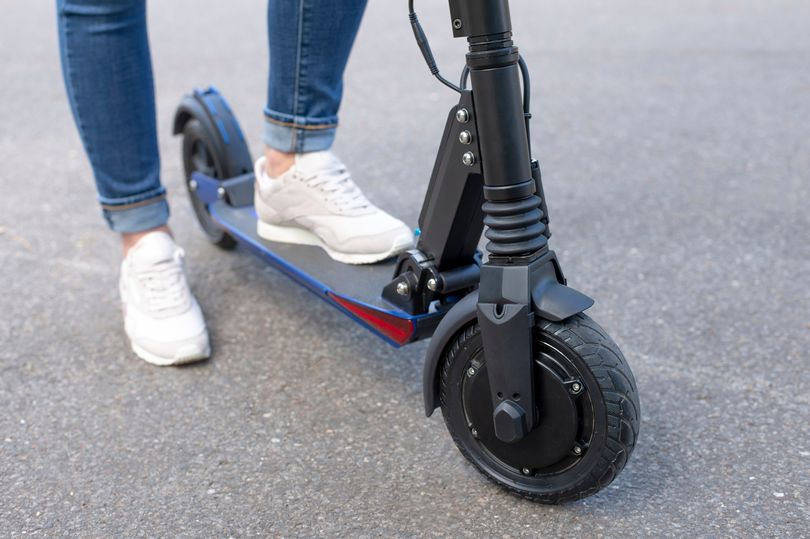Major update on e-scooters for under-18s as Government responds to campaign

The Department for Transport (DfT) has issued a key update on electric scooter use after thousands complained of 'insufficient regulation' for under-18s. Its message arrives at a time when there are no age restrictions on who can buy private e-scooters, even though riding them in public remains illegal for all ages.
The DfT stressed this fact in a response to a parliamentary petition that 'urgently' called for stricter enforcement and punishments on these rules. The department also assured it is 'taking action' against misselling and illegal use of private e-scooters, while rentals within national trials face 'strict requirements'.
"E-scooters meet the definition of a ‘motor vehicle’ under the Road Traffic Act 1988," the DfT's update issued on August 13 reads. "This means that private e-scooters are already illegal to use on the road for people of all ages.
- Leaving AC off cools car down in 30 seconds, even on hottest day
- Everything you need to know about nighttime parking rule that could see you fined
"When selling e-scooters, retailers must make it clear that they can only be used on private land with the landowner’s permission. The Driver and Vehicle Standards Agency Market Surveillance Unit (DVSA MSU) carries out surveillance of e-scooter retailers to ensure they are being sold lawfully and that the purchaser is made aware that they can only be used on private land with the landowner’s permission."
Between 2023 and 2024, DVSA MSU investigated 46 e-scooter suppliers and found that over half (24 suppliers) had 'some elements of non-compliance'. In light of this, 22 were made to take 'corrective action', while the other two removed non-compliant advertising.
Nonetheless, the Government recognised that some people are still not using e-scooters 'in accordance with the law', and police are being given 'stronger powers to stop vehicles being used disruptively'.
The DfT response continued: " Enforcement of illegal and/or irresponsible e-scooter use is a matter for the police. Users can face fines and fixed penalty notices, criminal prosecution, points on their driving licence and have their e-scooter impounded.
"The Government is giving the police stronger powers to stop vehicles being used disruptively, with officers no longer required to issue a warning before seizing illegally owned private e-scooters. This will allow them to deal swiftly with dangerous e-scooters on pavements.
"New Respect Orders will give the police and local councils powers to ban persistent offenders from certain areas where they are causing harm, and failure to comply with Respect Orders will be a criminal offence. They will be piloted prior to a national rollout to ensure they are as effective as possible."
Despite this, the DfT made a crucial distinction between private e-scooter use and rentals available in public trials. Privately bought e-scooters can only be ridden on private land with the permission of a landowner, meaning they are completely illegal to use in public spaces. Breaching these rules can result in a fine, penalty points, or the scooter may even be seized.
Yet electric rental scooters - available as part of DfT trials - are allowed to be used in approved public areas across the country. These differ because they are limited to 15.5mph, and any user is required to have a provisional or full driving licence.
That means the minimum driver age is 16. The DfT response explained: "As a condition of running a trial, each e-scooter operator must provide third-party unlimited liability insurance. Trial e-scooters are required to meet minimum standards on e-scooter design and each e-scooter model used in the trials is assessed for compliance.
"A second national evaluation of the e-scooter trials is currently underway, focusing on user and public safety, accessibility impacts and how e-scooters can be safely and effectively integrated into the wider transport network."
On a separate note, it also added: "Currently, the Motor Insurance Bureau (MIB) is covering the personal injury and property damage costs generated by private e-scooter riders at fault for a collision, as part of their ‘Uninsured Drivers Agreement’.
"The Government is committed to pursuing legislative reform for micromobility. As announced in the Advanced Manufacturing Sector Plan as part of the Government’s Industrial Strategy, we will create a new vehicle category for a more proportionate and agile process for regulating vehicles like e-scooters. Any new regulations will be consulted on before they come into force."
The DfT's response followed a parliamentary petition entitled 'Urgently regulate e-scooters', which currently has just over 14,000 signatures. If it reaches 100,000 signatures, it will be considered for a debate in Parliament.
You can view the petition in full here.
Full list of rental e-scooter trial locations
According to official Government advice, the following areas are currently participating in rental scooter trials:
- Bournemouth and Poole
- Buckinghamshire (Aylesbury, High Wycombe and Princes Risborough)
- Cambridge
- Essex (Braintree, Chelmsford and Colchester)
- Gloucestershire (Cheltenham, Gloucester and surrounding areas)
- Liverpool
- London (participating boroughs)
- Milton Keynes
- Newcastle
- North and West Northamptonshire (Northampton, Kettering, Corby, Wellingborough, Rushden and Higham Ferrers)
- Norwich
- Nottingham
- Oxford
- Salford
- Slough
- Solent (Isle of Wight, Portsmouth and Southampton)
- West Midlands (Birmingham, Coventry)
- West of England Combined Authority (Bristol, Bath and parts of South Gloucestershire)